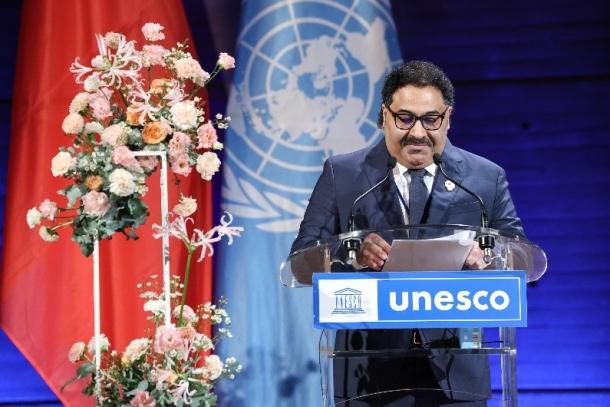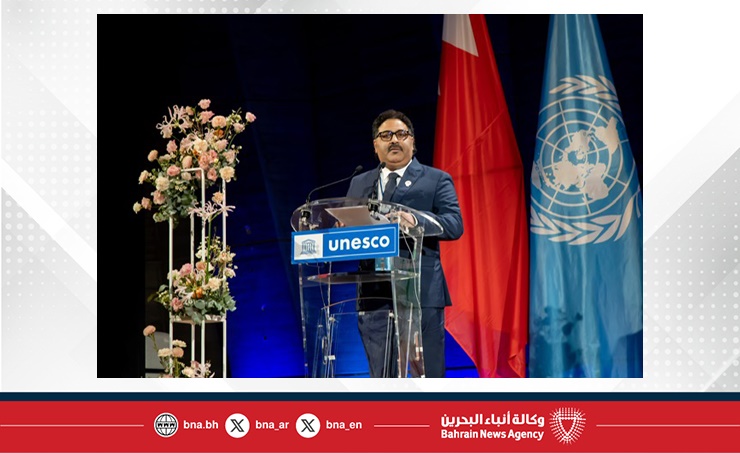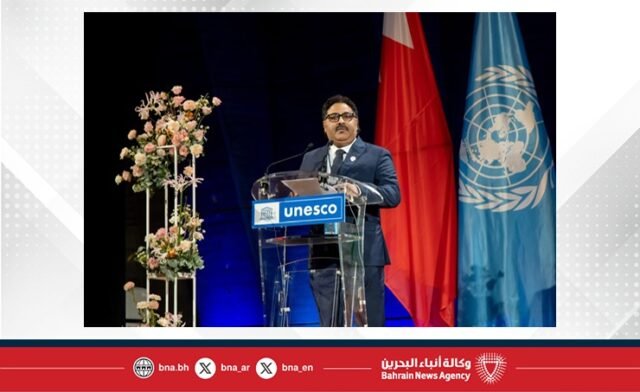As the world’s eyes increasingly turn to artificial intelligence (AI) and digital transformation in education, Bahrain will host the 2025 award ceremony for the UNESCO King Hamad Bin Isa Al Khalifa Prize for the Use of ICT in Education. This prestigious prize, championed by UNESCO and the Kingdom of Bahrain, celebrates outstanding initiatives that leverage technology to enhance learning, teaching, and educational equity.
In 2025, the spotlight falls on the theme “Preparing learners and teachers for the ethical and responsible use of artificial intelligence.” The ceremony will take place at the University of Bahrain, drawing global attention to how education systems can equip both teachers and students to navigate AI responsibly, according to UNESCO.
Bahrain’s continued support of this prize underscores the country’s commitment to bridging global divides in digital education. As the 20th anniversary of the prize approaches, the 2025 edition offers a timely reminder that the future of education is inextricably linked to the future of technology.

Table of Contents
A Prize with Purpose: Origins, Purpose & Process
The UNESCO King Hamad Bin Isa Al Khalifa Prize for the Use of ICT in Education was established in 2005 through the support of the Kingdom of Bahrain. Its goal is to recognise individuals, institutions, and non-governmental organisations whose projects leverage information and communication technologies (ICT) to expand education access, improve pedagogical outcomes, and promote lifelong learning.
Historically, UNESCO selects two laureates every year, each receiving US$25,000, a medal, and a diploma during a formal ceremony, traditionally held at UNESCO’s headquarters in Paris.
However, for 2025, the award ceremony will be held in Bahrain — in part in honour of the prize’s founding patron and as a symbolic reaffirmation of Bahrain’s stewardship.
Nomination & Selection
The call for nominations for the 2025 edition opened in February 2025, with submissions accepted until 28 April 2025.
Eligible candidates include individuals, institutions, NGOs, and other entities whose projects have been active for at least one year. Projects must not be affiliated with UNESCO itself or be funded by UNESCO.
An independent international jury, composed of five experts with equitable geographic and gender-balanced representation, reviews the entries. The jury evaluates based on criteria such as:
- Integrated approach to AI and ICT usage,
- Pedagogical relevance,
- Inclusivity (i.e. accessibility to underserved communities),
- Demonstrable evidence of impact,
- Potential for replication and scaling.
For 2025, UNESCO may select four winners, instead of the usual two, reflecting the special nature of this anniversary edition.
Why 2025’s Theme Matters: Infusing Ethics into AI in Education
At its core, the 2025 theme—“Preparing learners and teachers for the ethical and responsible use of artificial intelligence”—speaks to the intersection of technology, pedagogy, and values.
The Challenge: AI’s Opportunities and Risks
AI is transforming nearly every sphere, including education. From intelligent tutoring systems and adaptive learning platforms to automated assessment and data-driven insights, AI holds promise for personalised learning, efficiency, and scale. But with such promise comes serious baggage: biases embedded in algorithms, privacy concerns, transparency, misuse, and ethical implications.
Thus, education systems bear the responsibility to cultivate not just technical literacy in AI, but critical, reflective, and ethical awareness — helping learners and teachers understand not just how AI works, but when and why it should (or should not) be used.
2025’s theme invites projects that don’t merely deploy AI tools, but embed responsible design, safeguards, oversight, and inclusivity into those tools. UNESCO emphasises that winning projects should promote AI literacy that spans technical know-how, societal awareness, and reflective use.
What Outputs Could UNESCO Reward?
In the context of this theme, the kind of projects likely to flourish include:
- AI-aware curricula, training programmes, or professional development modules for teachers and learners,
- Institutional frameworks, policy documents, or guidelines for AI governance in education,
- Pilot deployments or case studies that combine technology with mechanisms for oversight, accountability, and inclusiveness,
- Tools or platforms that offer transparent AI components, designed to be scalable, replicable, and cost-accessible to underserved populations.
In short: not only “smart” tech, but smart use of tech.

What to Expect: Ceremony, Highlights & Legacy
The Award Day
The 2025 laureates will be publicly honoured at a high-profile ceremony in Bahrain. Dignitaries expected to attend include the UNESCO Director-General, Audrey Azoulay, and Bahrain’s Minister of Education, H.E. Dr Mohammed bin Mubarak Juma.
The ceremony schedule also includes roundtable discussions and an exhibition retracing the history of the Prize, offering a platform for finalists and stakeholders to engage on the central theme of AI ethics.
Emphasis on Dialogue & Legacy
By bringing finalists together, the event aims not simply to hand out awards but to spark cross-learning, build networks, and seed collaborations. The 2025 edition also underscores the Prize’s evolution over two decades, showing how technology in education has matured, and raising questions about the next frontiers.
As this anniversary edition, Bahrain’s hosting reinforces its role as a global advocate for digital education, and spotlights the Prize’s mission at a moment when AI’s influence is expanding fast.
Beyond the Ceremony: Encouraging Global Knock-On Effects
UNESCO and Bahrain hope this edition will inspire more countries, institutions, and educators—especially in Africa, Asia, Latin America—to adopt AI-aware strategies in education. The Prize has historically rewarded projects from diverse geographies, from China to Brazil to India to Africa.
By rewarding replicability and scalability, the Prize aims to spread good practices beyond a few flagship projects, encouraging adaptation across different contexts.
Notable Facts & Figures
- Each laureate receives US$25,000, a medal, and a diploma.
- The Prize was first constituted in 2005, making 2025 its 20th anniversary.
- Normally, two winners are selected yearly; 2025 may feature four winners to mark this anniversary.
- The jury panel comprises five independent members with balanced geographic and gender representation.
- The timeline: nominations launched February 2025; deadline 28 April 2025; international jury meeting in May; award ceremony in September.
Why It Matters for Nigeria — and Africa at Large
Though the Prize is global in reach, its resonance within Nigeria and across Africa is profound. As governments, institutions, and educators in Nigeria grapple with how to integrate AI into curriculum, assessment, and digital infrastructure, the UNESCO King Hamad Prize serves as both a beacon and a benchmark.
Benchmarking Standards and Aspirations
For Nigerian innovators, NGOs, universities, and edtech startups, participation (or nomination) puts local projects on the global map. It invites alignment with international best practices—especially in ethical AI integration.
Catalysing Local Innovation
Projects in Nigeria that embed AI literacy, tool development, or capacity building in ethically mindful ways stand to gain not just recognition but potential funding, partnerships, and scalability.
Spreading Best Practice
When African projects succeed and are shared globally, they become part of the narrative: that Africa is not just a consumer but a contributor to global edtech. The Prize encourages an ecosystem where Africa’s voices in responsible AI education matter.
Policy Leverage
Recognition by UNESCO can bolster policymakers’ confidence. It offers proof points to advocate for national AI strategies, curriculum reforms, teacher training, and public–private support targeted at ethical AI in schooling.

Conclusion
The 2025 UNESCO King Hamad Bin Isa Al Khalifa Prize for the Use of ICT in Education captures a critical moment: as AI reshapes how we teach and learn, the Prize becomes more than an award. It’s a call to arms for educators, technologists, and policymakers to commit to ethical, inclusive, and thoughtful integration of AI in the classroom.
Join Our Social Media Channels:
WhatsApp: NaijaEyes
Facebook: NaijaEyes
Twitter: NaijaEyes
Instagram: NaijaEyes
TikTok: NaijaEyes





